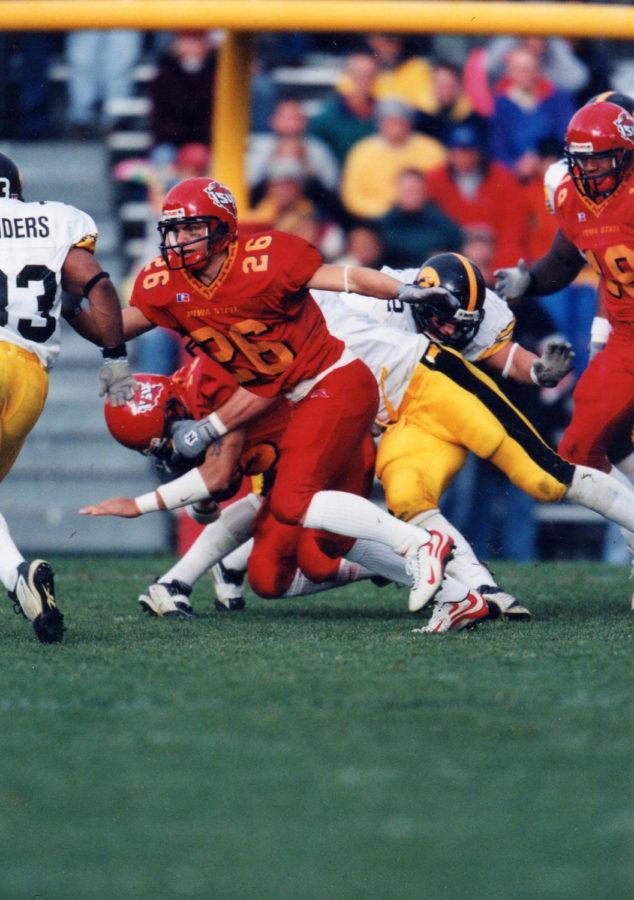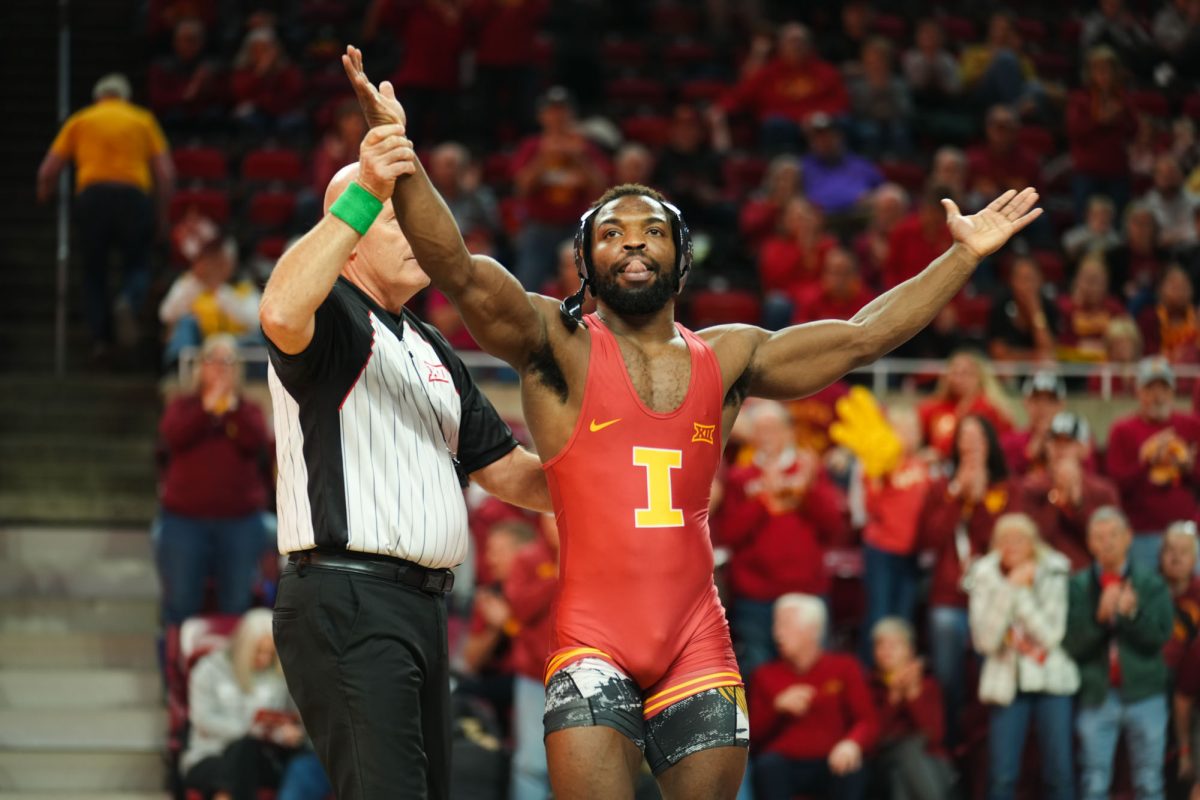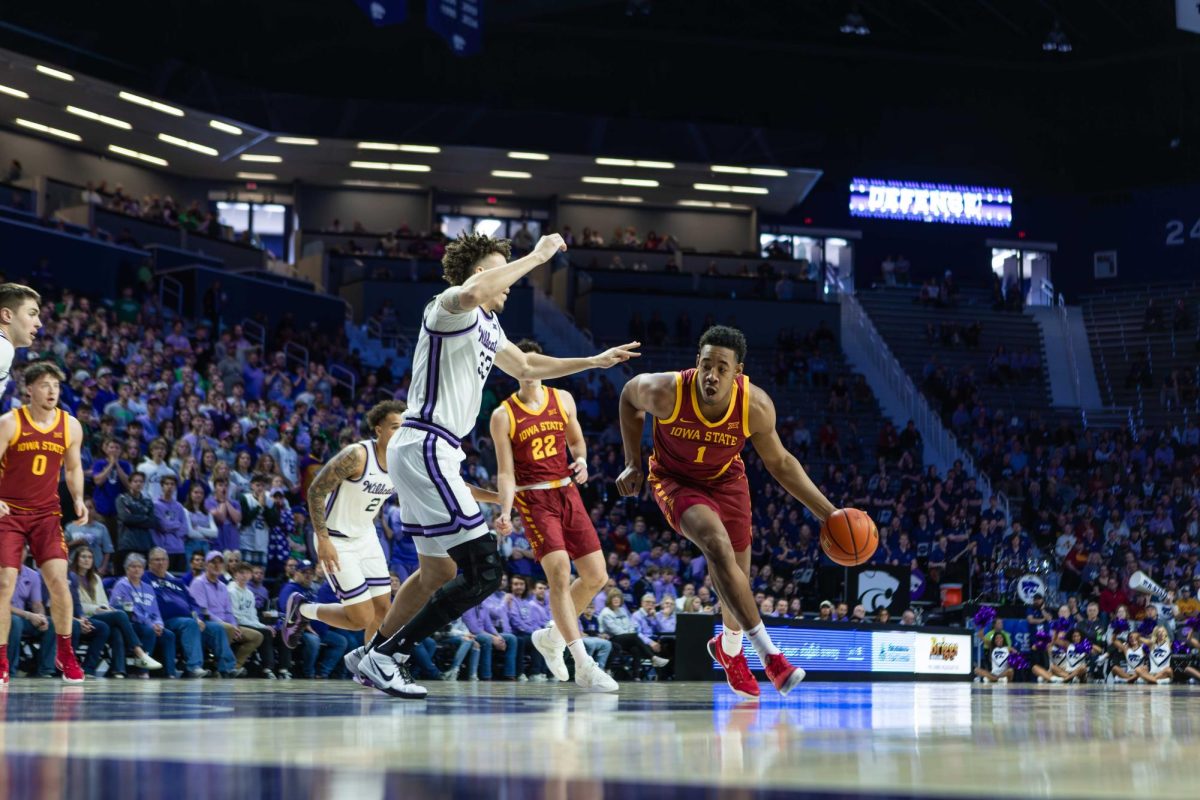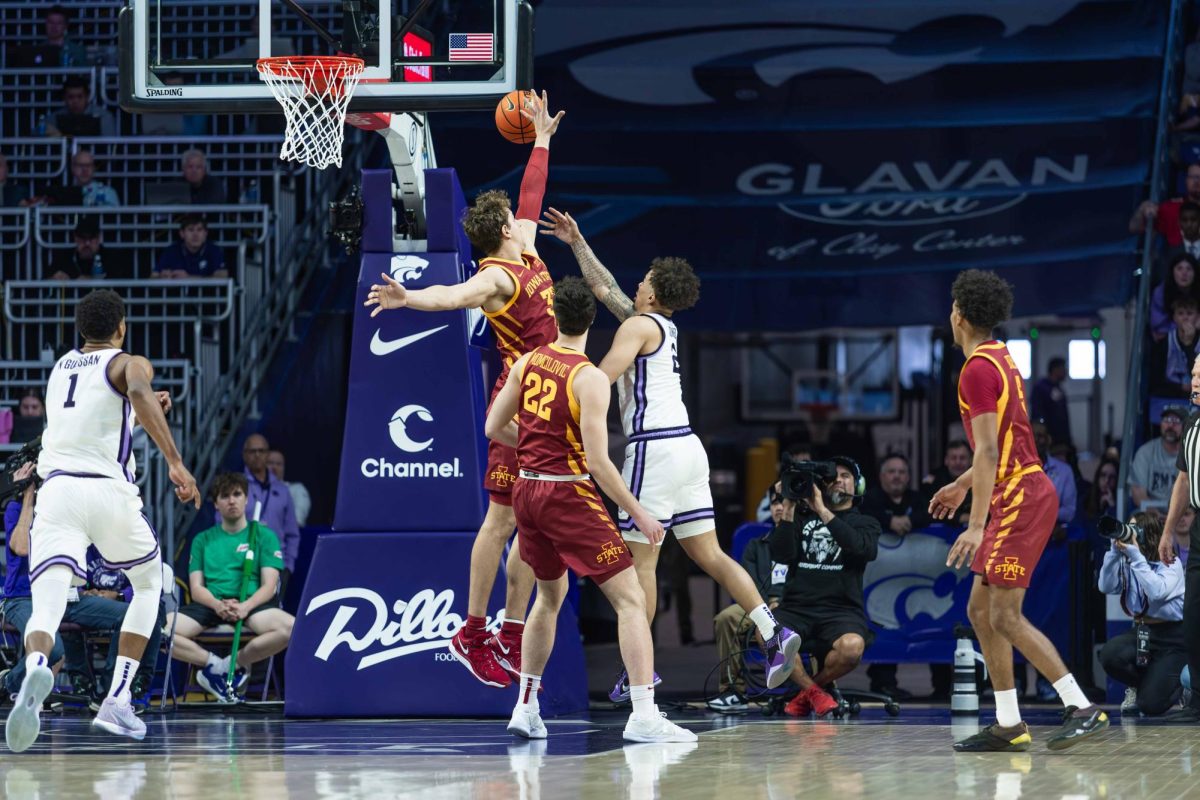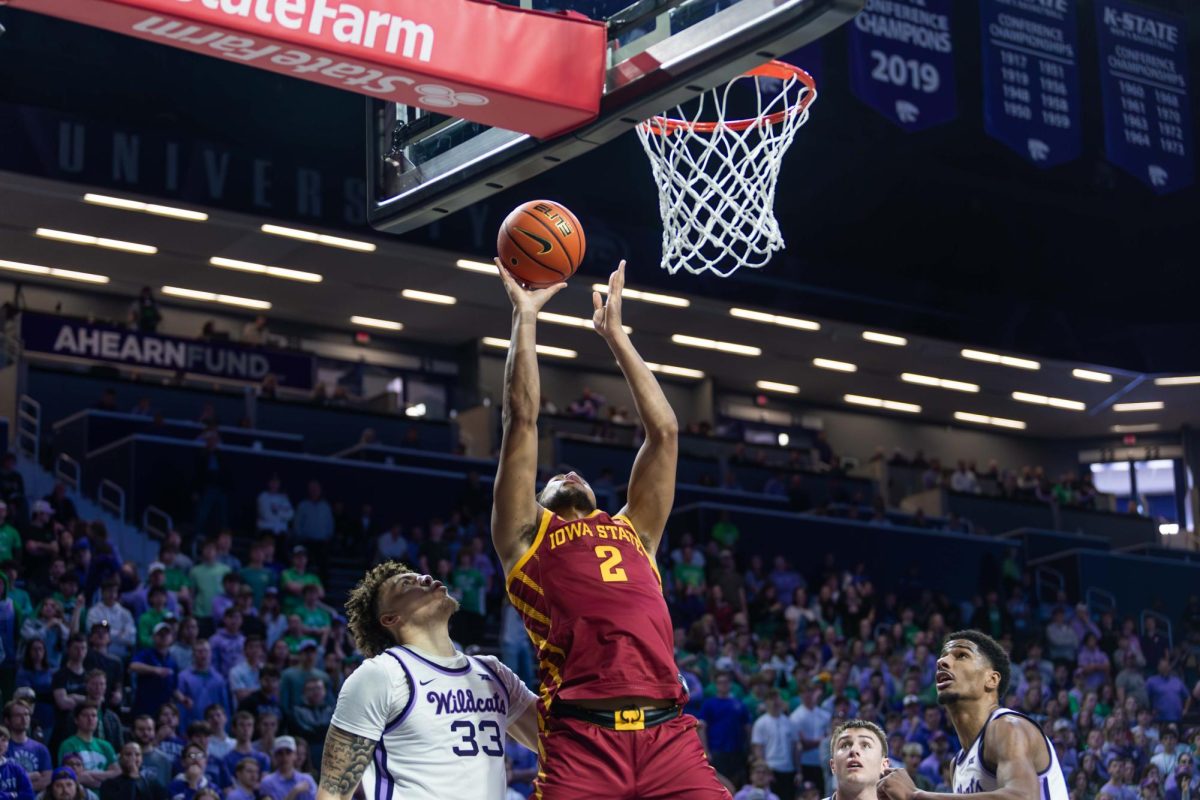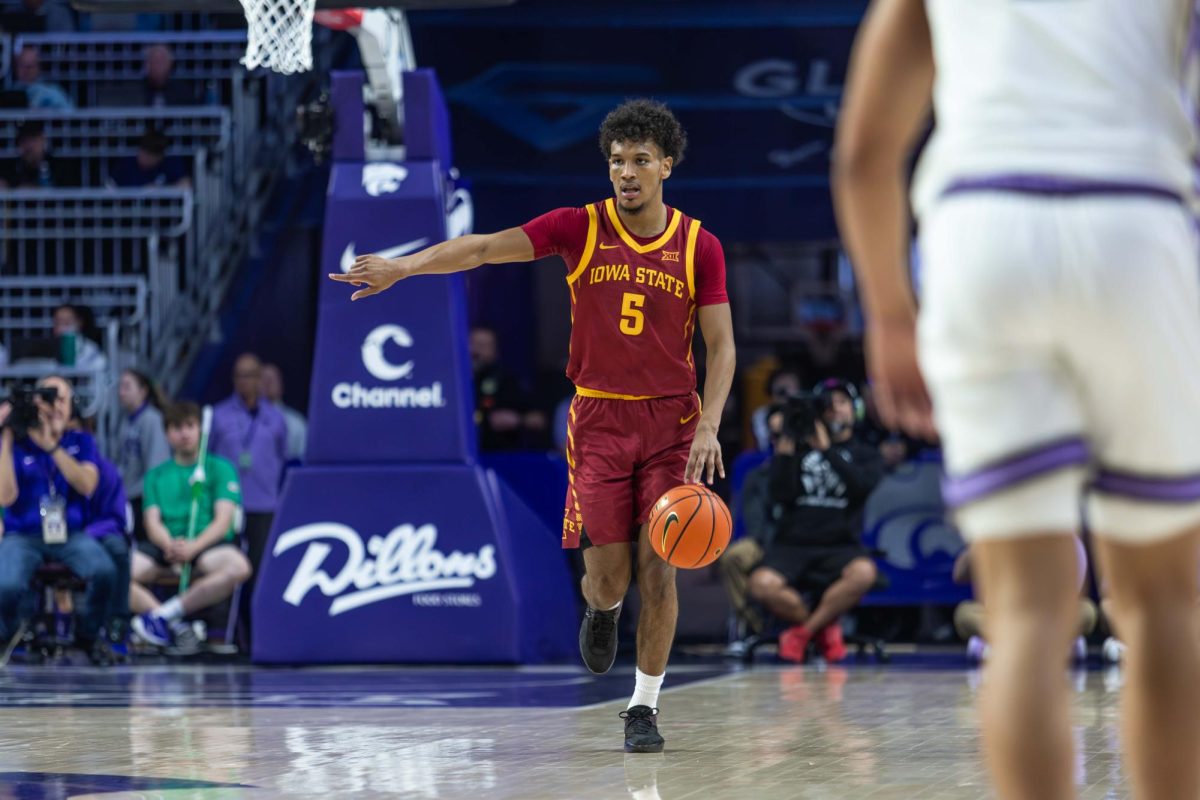GRIDIRON: One-on-One with Jack Whitver, former ISU wide receiver
Jack Whitver was a consistent figure in the ISU lineup during his five seasons at Iowa State from 1999-2003. During is time with the Cyclones, Whitver was a part of three bowl teams as well as a piece in a five-game winning streak against in-state rival Iowa.
November 22, 2013
When Jack Whitver wore the cardinal and gold, Iowa State was beginning to reach new heights. In the Grinnell, Iowa, native’s five seasons at Iowa State, the Cyclones went to three bowl games, earning one win, as well as notching five wins against in-state rival Iowa.
Now an state senator residing in Ankeny with his family, Whitver reflected on his time at Iowa State as a walk-on, owning a business, serving the state of Iowa as a senator and what the future might hold for the ISU football program.
You went to high school in Grinnell, Iowa; what made you want to come to Iowa State to play football as opposed to going to a school like Iowa?
Grinnell, that’s probably more of a Hawkeye town, but I grew up a Cyclone my entire life. I’ve been going to Iowa State football games really since I was born, or one or two years old. We would go to the games with my dad and grandparents so I’ve been a Cyclone my whole life. So when it came time to decide where I wanted to go play in college, that was a very, very easy decision for me.
You walked on to the ISU program in your redshirt freshman year (1999); how tough was it to be a walk-on at the start of your career?
It’s tough. It’s not easy to come into camp and be someone that has not been recruited, someone the coaches don’t know very well. But the thing about it is if you come in and work hard and prove that you can play, the coaches are more than happy to give you an opportunity. Really for me it was just about working hard. Really a lot of it is about surviving. More guys quit than not, so those who can survive and get better, ultimately a lot of times will get a good chance to play.
Was being a walk-on at a Division I program harder than you expected?
I don’t think it has to do with being a walk-on. Paying my own way was one thing, but for any freshman it’s a huge adjustment to go play college football because of the time commitment. If you’re not lifting weights, you’re in meetings and if you’re not in meetings, you’re in practice and if you’re not at practice, you’re at study table. So your day is pretty much lined up for you. It’s a huge adjustment, but they do it that way for a reason because they want to make sure that you’re not only getting your job done as a football player, but more importantly that you’re staying eligible and getting good grades so that you can continue to play.
What was the moment like when former ISU coach Dan McCarney announced that you had received a scholarship?
That was a pretty cool experience. It was at a team meeting at the end of spring ball and Coach Mac, he was always good about rewarding scholarships to walk-ons, so we did that every year. The year I got it, more than anything it was just a validation that you can play; the coaches believe in you; you can be successful. It was a really special moment and something I’ll never forget.
Many people remember the play your junior year against Iowa when you caught the pass from Seneca Wallace that he threw from near your own end zone for a first-down pickup in the comeback win. What do you remember about that game?
That was really my first big game as a Cyclone. I started my whole sophomore year, but really didn’t have any big games. It’s funny, that’s the play people bring up to me probably once every other week. It’s something people remember and it’s funny because it wasn’t even a touchdown. It was a 30-yard conversion, but at that time of the game it was a play that we needed to have if we were going to win because momentum was starting to shift and that conversion was really the thing I think propelled us to victory, which was a huge win. A win over in Iowa City, that was our fifth-straight win against Iowa and that was a team that went undefeated besides that game. That was a big game and a really fun time.
The ISU teams you played on went to three bowl games and won five-straight games against in-state rival Iowa; what is the biggest memory that stands out to you when you think about your time at Iowa State?
As far as on the field, [the Iowa game in Iowa City] was probably the biggest game, but the thing that I remember most about playing at Iowa State were the things that happened off the field. Just the camaraderie you have with your teammates and some of those long, hard practices that are brutal and not fun. But you’re in it together and just the whole process was a lot of fun. I have as many memories off the field as I do on the field and made so many good friends.
You graduated in three years with your bachelor’s degree from Iowa State; was that something you originally planned to do?
I didn’t set that as a goal, but coming in as a walk-on I really didn’t have high hopes of going and playing in the NFL or anything like that and so I had to focus in and do well in the academic areas as well. So I just took a lot of classes and worked hard. The thing about it is when you play football, you’re on campus all summer, you don’t have a summer job, you’re just on campus. So I just took advantage of that and took eight or 10 credits every summer and that enabled me to graduate early.
You’re also an owner of Acceleration Iowa. Can you talk a little bit about that business?
When I graduated, I knew I wanted to open a business and the only business I really knew about was sports so I opened Acceleration Iowa, which is a sports training facility for middle-school and high-school athletes. Over the last nine years, we’ve opened three of those locations and I also own three locations of Cross-Fit, which is kind of a newer adult intense program. So we have three Acceleration Iowa, and we have three Cross-Fit as well.
You are also an Iowa State Senator. What was it that made you want to seek public office and get involved in politics?
To me it was just all about leadership and I was disappointed in some of the leadership in our state. I decided that instead of complaining about it, I would rather be a part of the solution so I ran for office and was fortunate enough to win. And I’ve really enjoyed my time the last three years in the Iowa Senate.
In 2003 [your senior season], Iowa State went 2-10. Does that season feel similar at all to the Cyclones’ 1-9 season so far this year and what advice would you give to current players?
To the seniors, first of all, I would tell them to continue fighting hard, because for most of them, they won’t have a chance to play after college, so these are the last two opportunities they’re going to have to put on the football pads and play college football; to not give up and not give up the fight. To the younger guys, I would tell them that while it’s been a tough year, a lot of guys have got a lot of great experience that will be a big dividend the next year and the year after. If you look back to 2003, we had a very rough year. We had a lot of young guys. We had a lot of injury problems similar to this year, but the following year, in 2004, they were able to turn it around very quickly and have a winning record and go back to a bowl game. It can be turned around quickly, but the younger guys have to want to stay with the program and work as hard as they can to make sure a season like this doesn’t happen again.


